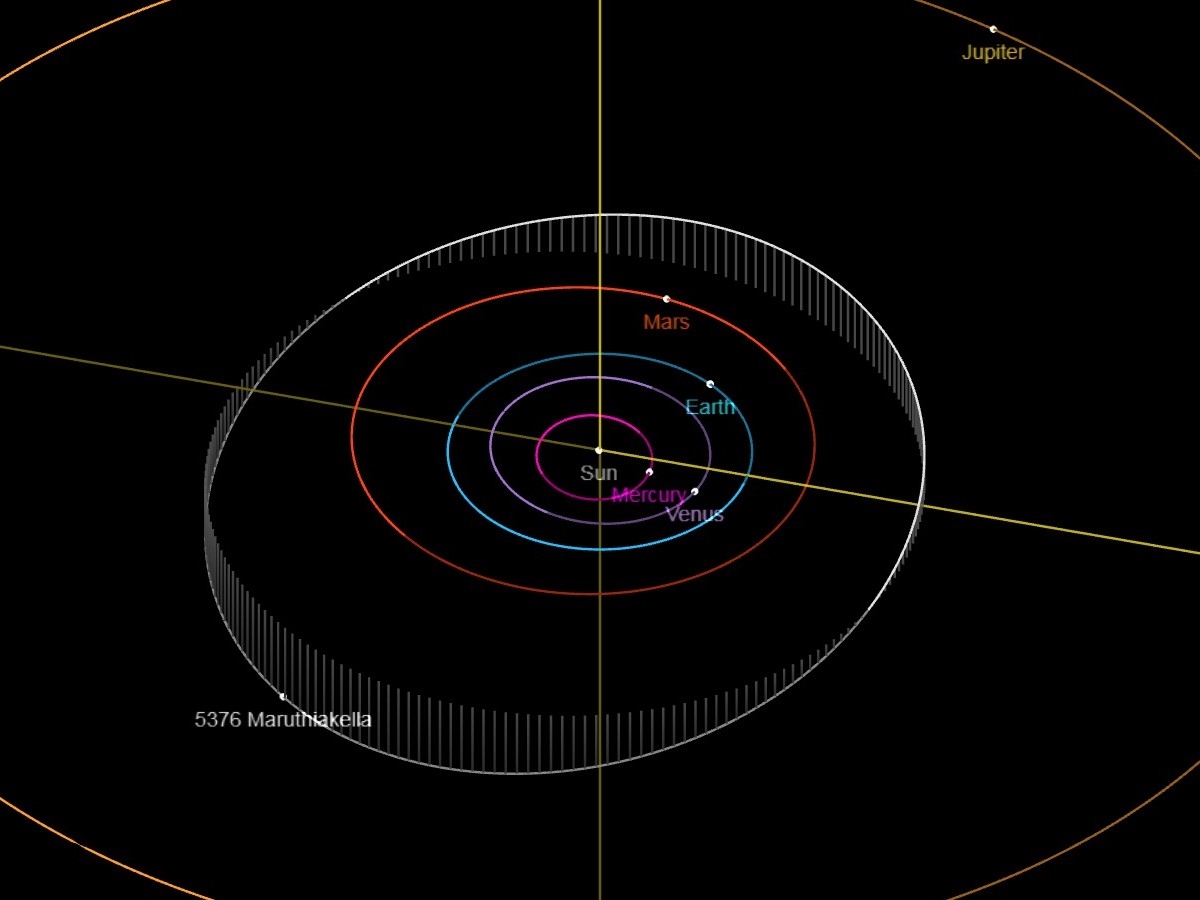
The “eccentric” orbit pattern of the asteroid Maruthiakella.
Maruthi Akella reached for the stars. Now his name is among them.
The professor in the Cockrell School’s Department of Aerospace Engineering and Engineering Mechanics recently had an asteroid named for him. It’s a rare honor that includes a rigorous selection process led by an international organization.
And for Akella, it came as a total surprise.
“I was attending the International Astronautical Congress in Milan, Italy that week, and when I returned to my hotel room that night, I had an email saying this asteroid has been designated with my name,” he said. “At first, I didn’t believe it. I’ve known some extremely distinguished colleagues in the community that previously received this honor, but I never imagined in my wildest dreams that someday it would happen for me.”
For as long as he can remember, aerospace was close to Akella’s heart. Growing up in mostly small-town India from a modest household, he didn’t have the opportunity to attend school until the eighth grade. Nonetheless, he has been fascinated with “all things space” from a young age.
Indian space program was largely in its infancy stage during those days, so he followed U.S. and Soviet Union milestones from newspapers. He was deeply inspired by Rakesh Sharma, the first person from India to go to space in 1984.
Unsurprisingly in hindsight, Akella excelled academically. He entered eighth grade at just 11 years old, three years younger than his peers. He faced many challenges as a younger student. But every step of the way, the path to aerospace, his guiding light at the time, became clearer.
Decades later, Akella accomplished a few professional milestones, and much more. How would his younger self feel?
“I think his jaw would hit the floor,” Akella said. “When I think of that kid back then, and where I am now, the one word I can think of is how grateful I am.”

Maruthi Akella, professor in the Cockrell School’s Department of Aerospace Engineering and Engineering Mechanics
Akella is a world-renowned expert in learning and control for space systems. He has made numerous breakthroughs in his field, and his expertise was critical to Intuitive Machines’ IM-1 lunar lander guidance, the first U.S. craft to land on the Moon in 50 years.
“This is great news for Maruthi and the department,” said Clint Dawson, chair of the aerospace department. “We’re fortunate to have Maruthi on our faculty, whose expertise in the field of astrodynamics is highly regarded among the community. He is well deserving of this recognition.”
The asteroid, now named Maruthiakella, was discovered in 1990 and is 5.5 miles wide. It sits in the main asteroid belt between Jupiter and Mars. And it takes about three years, nine months to orbit around the Sun. Akella says the asteroid’s orbit has a slight bit of eccentricity, which is fitting for his self-described eccentric personality — in a funny way.
Of the close to 1.4 million “small planets” cataloged in space to date, nearly 25,000 — or just shy of 2% — are named. At least two other UT aerospace faculty members have named asteroids: Ivo Babuska and Raynor Duncombe.
Nearly all asteroids named for humans must reside in the main belt, and they can’t approach within 100,000 miles of Earth. There’s a reason for that.
“Anything near Earth will never get a human name, because you don’t ever want to run the risk of Maruthiakella coming and destroying the planet; that doesn’t sound good,” he said.
The formal process for naming all asteroids and keeping their custody is governed by the International Astronomical Union (IAU) Working Group for Small Bodies Nomenclature. Eligibility begins with a nomination.
In Akella’s case, that nomination came from Ryan Park, a senior research scientist and principal engineer at NASA’s Jet Propulsion Laboratory and member of the IAU working group. They’re known each for nearly two decades, attending many of the same conferences and collaborating frequently. They also help lead The Journal of the Astronautical Sciences together, with Akella serving as editor-in-chief and Park as associate editor.
“I have always admired his passion, leadership, and dedication to the field of astronautics,” said Park. “He is both a true academic and an exceptional professor, making this recognition well-deserved.”
